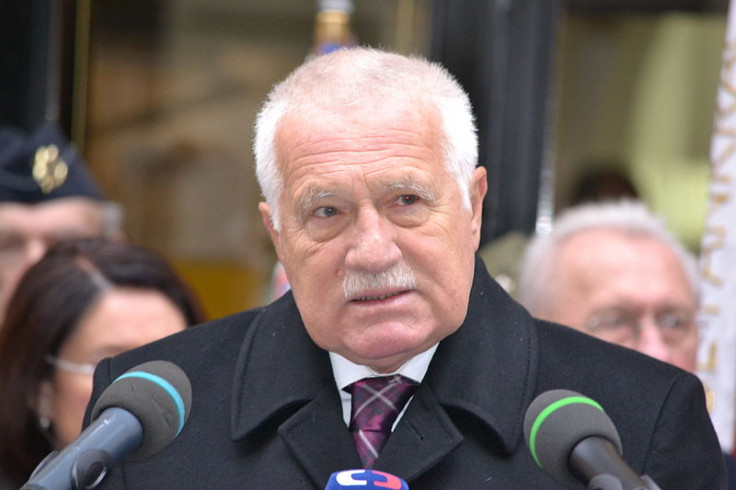Thousands Of Prisoners Freed By Czech President's Mass Pardon

Outgoing Czech President Vaclav Klaus will pardon roughly one-third of the country’s prisoners, a move which has drawn criticism from his party's political opposition and prompted government ministers to distance themselves from their leader’s decision.
The mass amnesty was announced on Tuesday with some 3,000 inmates released since that date and more than 4,000 expected to return to civilian life in the coming days.
"This is a gesture aimed at giving a fresh chance to those citizens who may have broken the law but who are not repeat offenders," said Klaus, who will step down in March, the BBC reported.
Under the proclamation, those serving sentences of one year or less are eligible for release, as well as those over the age of 75, so long as their sentences are less than 10 years. All prisoners with sentences of over 10 years will not be considered for release.
Supporters of the decision said that it would ease stresses on the country’s overcrowded prison system, which currently manages 23,000 inmates.
The opposition Social Democrat party questioned the conservative president’s decision, particularly due to the fact that he released many involved in major financial scandals that took place during the 1990s.
The amnesty will also result in the closing of several large-scale financial fraud investigations stemming back to that era.
Members of the SD party have demanded that a vote of no confidence against Prime Minister Petr Necas be held over his support for the amnesty.
The fiscally conservative TOP O9 party, which forms the second largest group within Klaus’ governing political coalition, denied any responsibility for the decision, with members claiming they had not been consulted or informed about it in advance.
The Prague Post reported last August that Czech prisons are plagued by both overcrowding and staff shortages.
With a total capacity of just under 21,000, Czech jails recently held more than 23,000 inmates. The country also had 214 prisoners per 100,000 people -- versus an EU average of 137. Only three Baltic nations -- Estonia, Latvia and Lithuania -- have a higher rate.
Of the republic’s 36 prisons, on average, they hold 12 percent more inmates than they were designed to incarcerate. At the Heřmanice Prison in the town of Ostrava, the number of prisoners is at 137 percent of capacity.
"Generally, overcrowding is a problem," Prisons Service spokesman Robert Káčer told the Post.
"Inmates get aggressive because there are too many of them in a small space. They are sensitive about their rights."
© Copyright IBTimes 2024. All rights reserved.




















